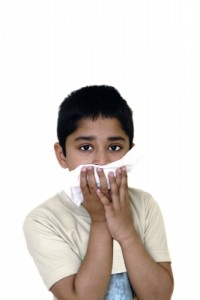Protect Your Children From Food Allergies
Jul 13th, 2012
 A new study revealed that kids who live in the city are more prone to food allergies than those living in rural areas.
A new study revealed that kids who live in the city are more prone to food allergies than those living in rural areas.
There are almost 6 million children, or one in every thirteen children, across the country who have food allergies. Based on the study, the most common allergens are peanuts and shellfish. 2.8 percent of children in the city are allergic to peanuts, and 1.3 percent in rural communities. 2.4 percent of city kids are allergic to shellfish, while only 0.8 percent of their rural counterparts.
Experts believe this may be attributed to population density. States that have the most number of children with allergies are Nevada, Florida, Georgia, Alaska, New Jersey, Delaware, Maryland, and the District of Columbia.
There has been a rapid increase in the number of children with food allergies since 1997. Experts believe this may be due to children being “very clean”. The immune system is meant to fight germs that pose harm to our bodies. If they have nothing to fight with, they fight food, thinking it’s harmful.
Allergic reactions, in general, may vary from mild to severe. Severe allergies can cause the throat to shut and will make breathing extremely difficult. Sadly, about 150-200 Americans die every year because of allergic reactions.
The first time a person eats a food they are allergic to, no allergic reaction occurs. However, the next time they eat it, that’s when the allergic reaction comes out.
The following are the most common initial symptoms of food allergy in children:
- Rashes especially on the face
- Puffy eyes
- Diaper rash
- Hives
- Runny nose
- Watery eyes
- Sneezing
- Diarrhea
- Vomiting
- Irritability
- Temperament changes
- Nasal congestion
The most common allergens include:
- milk
- eggs
- peanut
- soy
- fish
- shellfish
- chocolate
- berries
- citrus fruits
- tomatoes
- wheat
- yeast
Having food allergies is especially difficult for kids. They are not mature enough to handle the condition. And it’s worse when you have not discovered the allergy yet.
Is there a way we can minimize the chances of our kids developing allergies?
- Studies suggest that introducing solid food to an infant not earlier than four months actually reduces the risk for developing allergies.
- The selection of food being introduced to the infant should also be carefully selected.
- Food items that are among the most common allergens (see list above) should not be given to the child.
- It is advisable for children who are of school age to have epinephrine within their reach at any time. But don’t let small children carry the epinephrine themselves. You might want to discuss this with their teacher. Accessibility of epinephrine is vital for those with a severe case of allergy and must be administered as soon as possible.
While managing food allergies can be challenging, especially for young children, ensuring comprehensive health insurance coverage can make a significant difference. With proper coverage, parents can access the necessary medical support, including preventive care and emergency treatments like epinephrine, ensuring that children with allergies receive timely and effective care.
Related posts from our blog:
No related posts.
Tags: food allergies